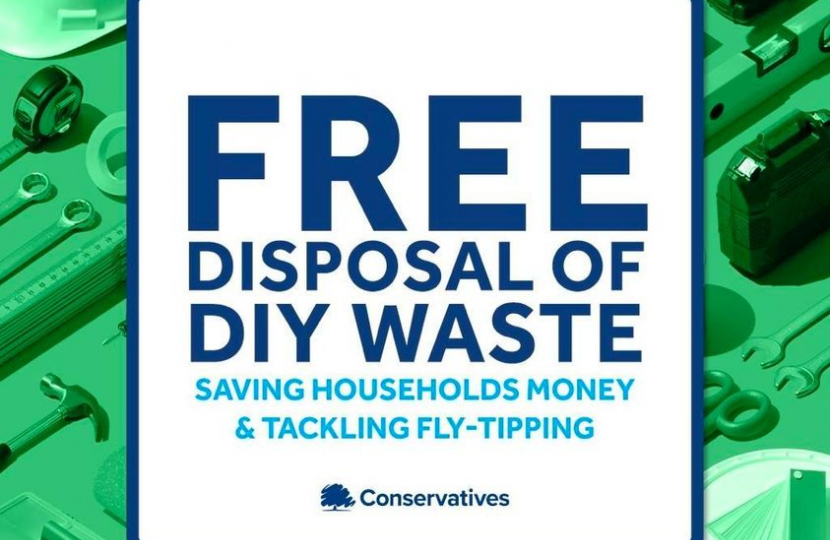
Richard Fuller MP has welcomed proposals which mean that households will no longer have to pay to get rid of DIY waste under plans set out by the government to change the rules that currently allow some Local Authorities to charge for DIY waste from households. Under the proposals, household DIYers would not be charged to get rid of waste including plasterboards, bricks and bath units.
This is part of a fresh move to crack down on fly-tipping, which has increased since the beginning of the pandemic.
The government banned backdoor charges on local residents disposing of household rubbish at household waste centres in 2015 and since then guidance has made clear that this includes DIY household waste. However, around a third of Local Authorities still charge for certain types of DIY waste, using rules designed for construction waste. The changes outlined in a technical consultation recently published will change this rule and could save households up to £10 for an individual item – for example, a sheet of plasterboard.
Fly-tipping is a crime which blights communities, poses a risk to public health and the environment, and costs up to £392 million a year. Local authorities dealt with 1.13 million fly-tipping incidents in 2020/21, up by 16% from 2019/20.
Alongside this, a call for evidence on the use of booking systems at recycling centres has been launched – some of which were brought in when restrictions were imposed during the pandemic – amid concerns these could be making it harder for people to dispose of their waste and increasing the risk of fly-tipping. A number of local authorities charge for construction waste such as paving slabs and roofing materials, but the government is consulting on amending legislation so that householders cannot be charged for DIY waste at recycling centres. To take part in the call for evidence and consultation, which closes on 4 July, please visit this page.
These proposals come after plans to reform the waste industry, were launched in January. Digital waste tracking will mean those handling waste will record information from the point waste is produced to the stage it is disposed of, recycled or reused, making it easier for regulators to detect illegal activity and tackle fly-tipping and other waste crime. The reform of the licensing system for waste carriers, brokers and dealers will increase the competence and background checks needed to operate as a waste carrier, broker or dealer, and make it easier for regulators to enforce against non-compliant operators whilst making it harder for un-registered operators to find work in the sector.
Richard said:
Some local authorities charge DIYers to dispose of waste which can lead to criminal activities like fly-tipping that blights our communities, harms the environment and costs £392 million a year. That is why the government has announced a consultation on plans to close a loophole which has allowed councils to charge fees for DIY waste, including plasterboards, bricks and bath units.
These new plans, alongside the introduction of digital waste tracking and requiring licenses for waste businesses, will save households money, stop criminals abusing the waste system and protect our countryside from illegal dumping.
